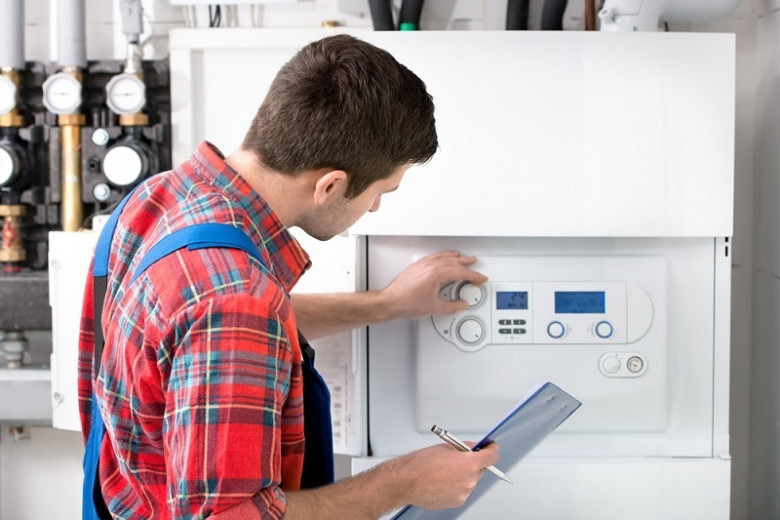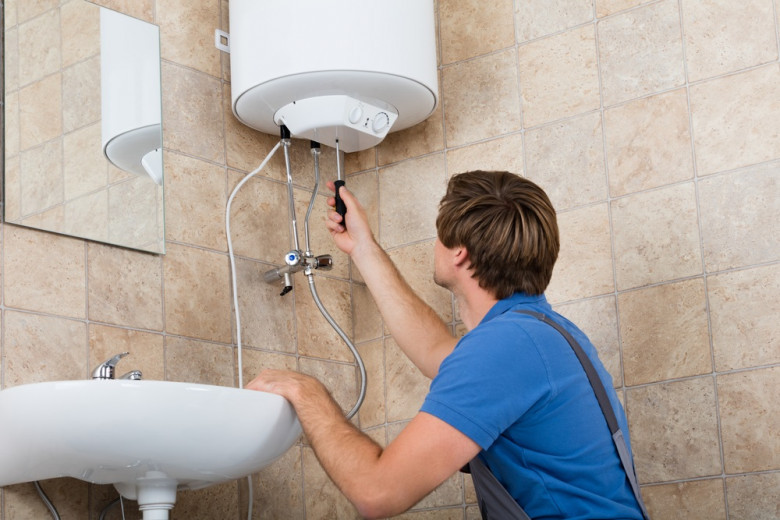views
Have you ever wondered why your electricity bill seems to skyrocket in winter when everyone in the family craves those long, hot showers? Do you find yourself juggling different water-heating options, hoping to land on the perfect balance between performance and cost? If you’re nodding along, then you’re in good company. Choosing the right hot water system is crucial for comfort, savings, and peace of mind.

In this post, we’ll explore everything you need to know about heat pump hot water systems. You’ll discover how they work, what they cost, and why they could be the right fit for your household in Australia. Plus, we’ll discuss key factors to consider before committing, from tank capacity to climate suitability.
What Is a Heat Pump Hot Water System?
A heat pump hot water system uses a refrigeration cycle to extract warmth from the air and transfer it into your water tank. Think of it like a reverse air conditioner for your water supply. Rather than generating heat directly through electricity or gas, the system captures and concentrates existing heat in the air, making it a more effective way to get hot water on tap.
How Do Heat Pump Hot Water Systems Work?
To heat the water, a fan pulls ambient air into the heat pump. An evaporator coil containing refrigerant absorbs this heat and transforms it into a gas. The gas is compressed, which raises its temperature even more. That heat is then transferred to the water in the tank before the refrigerant cools and the cycle begins again. The process requires some electricity but uses far less overall energy than traditional electric systems.
Why Choosing the Right Heat Pump Hot Water System Matters
A heat pump hot water system does more than provide you with a toasty supply of water on demand. It can dramatically lower your energy usage over the long term. By harnessing ambient air temperature—rather than relying solely on direct electric resistance—you’re tapping into an efficient, eco-friendly solution. Selecting the wrong system, however, can lead to excessive noise, subpar performance, or inflated bills. And let’s face it, no one wants to regret such a major home investment.
What to Consider Before Buying
Choosing a heat pump hot water system involves more than simply picking a shiny model off the showroom floor. You’ll want to look at efficiency ratings, tank size, noise concerns, and how well the system matches your local climate. By ticking these boxes, you’ll be on track for a smoother experience.
Energy Efficiency Ratings
All modern systems in Australia come with an energy-rating label. The more stars you see, the more efficient the unit. Higher ratings can mean higher up-front costs, but these systems often yield better long-term savings. If your main priority is cutting energy bills, push for the highest rating you can comfortably afford.
Tank Capacity and Household Size
Tank capacity should match the number of people in your household and their hot water habits. A small family can typically function with a tank ranging from 160 to 270 litres, whereas larger households might need 300 litres or more. Don’t fall for the “bigger is always better” myth—oversizing your system can mean unnecessary expenses and energy usage.
Noise Levels and Installation Space Requirements
Some models generate more sound than others, and not everyone appreciates a droning fan. If your neighbours are close by, you may need a quieter version or a suitable location far from shared boundaries. In addition, double-check space requirements. Certain models perform best with good airflow around the unit, so proper placement matters.
Climate Suitability: Hot vs. Colder Regions
Not all systems are made equal for every climate. Models designed for mild weather may struggle when temperatures dip consistently below 5°C. Colder regions often require heat pumps featuring a defrost function or a backup electric booster. Investigate how a unit is rated for your local climate zone, so you know it will function well all year.

Top Heat Pump Hot Water System Brands in Australia
Brand choice can influence everything from upfront costs to long-term reliability. The market is packed with options, from top-tier models brimming with features to more budget-friendly offerings that still get the job done.
Premium Models for Maximum Efficiency
Several premium brands place a strong emphasis on advanced technology. You’ll often find units loaded with smart features like timers and temperature controls. These premium heat pump hot water systems might cost more, but they also tend to have higher efficiency ratings and sturdier build quality. Suitable for larger households or homeowners committed to long-term energy savings, these top-of-the-line models can be a worthy investment.
Mid-Range Options Offering Value for Money
For many households, mid-range systems strike the ideal balance between features and affordability. You’ll still get reliable performance, quiet operation, and decent warranty coverage—often at a manageable price point. Although they might not boast all the bells and whistles, they’re typically well-built and satisfy the daily needs of most Australian families.
Budget-Friendly Systems for Smaller Households
If you’re part of a smaller family or live in a unit with limited hot water usage, a budget-friendly heat pump can still do a great job. These systems might lack premium add-ons or top-tier insulation, but they’re often easier on the wallet. Just make sure to check the energy efficiency ratings and ask about warranty terms before buying.
Conclusion:
Choosing a heat pump hot water system can seem daunting at first, but it comes down to a few main points. Make sure to consider your household size, climate, and the system’s energy efficiency. Don’t forget to explore potential rebates or incentives. And always weigh upfront costs against long-term savings—often, the slightly higher purchase price is quickly offset by reduced electricity bills.



Comments
0 comment